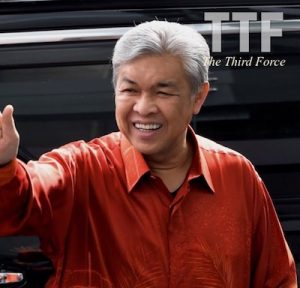
Aziz Hassan
MANY were hoping to see a new Umno that will move ahead parallel to the much-promised New Malaysia but the party’s election results some days ago failed to do that and left some members disappointed enough to even cause one parliamentarian to desert the party.
Across the board, most of those elected to Umno’s main decision-making body under the collegiate format introduced in 2013 comprised many known names who have been around since a few national general elections ago. Amongst the ones who made it through the first time, there isn’t one whose name immediately rings a bell as a nationally known potential leader.
One who went that few steps further by quitting the party was Puteri head Datuk Wira Mas Ermieyati Samsudin, who groaned that the results showed how Umno had gone against the voices of the people. The irony is that when she was in that leadership position, hardly anything was heard from Mas on the need for Umno to rejuvenate, transform. Maybe she did but if she did, party members and the public at large certainly were unaware she was one of those voices clamouring for change.
In so criticising Umno the lawyer failed to see why delegates did not elect more younger members into leadership positions, especially nationally.
The reason was that even if they hunted for new potentials, there were hardly any to choose from simply because there was never any foundation for that in the first place. To be elected, a candidate must first be known to delegates. Thereafter he or she must be able to convince them that in him or her there is someone with leadership potential but how to do this when you were never in an active role prior to the election?
Thus delegates from 191 divisions eventually found themselves confronted with names they were familiar with and known to have had a role at the national level, no matter how not significant. For some it must have been between the devils they knew and those they had never heard of before and that wasn’t much of a choice.
Given this situation that is said to be against the wider wishes of the community, what the new Umno leadership must do is to start developing new and younger talents by appointing them into the supreme council or co-opting them into the committees at the main level and also for the three branches – Wanita, Puteri and Pemuda. Do this and some should be known to many of the delegates by the time the next election is held. If the grooming is right, definitely the latest by two terms away. But fail to act and Umno may find itself in a deeper abyss a few years down the line.
Another well-known name that decided to stay away from a leadership role he was familiar with was former Pemuda head Khairy Jamaluddin, one of two defeated presidential candidates. He turned down an offer from new president Datuk Seri Dr Ahmad Zahid Hamidi to be the secretary-general, preferring instead to focus on his role as a member of parliament for Rembau.
That Umno is under siege cannot be denied, with a few parliamentarians quitting the party but not vacating the seats they were elected to. Allies in Sabah, Sarawak and one in the peninsular have also decided to go their separate ways and the most damning decision against Umno yet is to have some of its bank accounts frozen.
How Umno finds a way out if its appeal against the freeze fails may help define its future, after decades of surviving and having a good time all expenses paid.
Critics and other detractors who observe with glee Umno’s fall from power though need reminding that despite declining results in the last three general elections, Umno remains the party with the most seats in parliament, which means all is not lost.
Without the resignations it would have 54 seats, seven more than PKR which has the second largest representation. That Umno no longer has an appeal in the urban centres also cannot be denied but there is no compelling reason why it should be so in relation to a hold on power.
So what if Umno’s popularity has always been more in the rural heartland, where a majority of the Malay constituents are found. Regardless of the shift to what is seemingly a more multi-racial politics, that Malaysian politics has always been race-based is an undeniable fact. Just look at the Chinese support for the DAP.
The rural Malays need a party that serves more as a conduit between them and those in office, both politicians and civil servants. That’s where the agencies and departments that were set up to deal with rural issues and rural communities come into play but this too has become a casualty of the New Malaysia.
Without Umno who can the rural Malays turn to? PKR is a multi-racial outfit that is more urban based. Amanah’s hold on the community isn’t clear-cut while Pribumi Bersatu hasn’t had the time and has not put in much effort to form branches. Of course the DAP is out of the question in this regard.
What is certain is that even if it continues to have a strong influence with the rural Malays, Umno will need maybe two partners if it were to be able to string together enough seats to rule again. On its own the only time it had enough seats to go it alone was in 1964, when it won 59 of 104 seats available. It came close to getting a small majority in a few elections but never enough.
Source: The Mole
Note: If everyone who likes our content helps fund it, it would help us bring more such content in the future. For as little as RM10, you can support The Third Force, and it only takes a minute. Click the donate button on the top right or follow the link HERE if you intend to make a contribution. Thank you.



